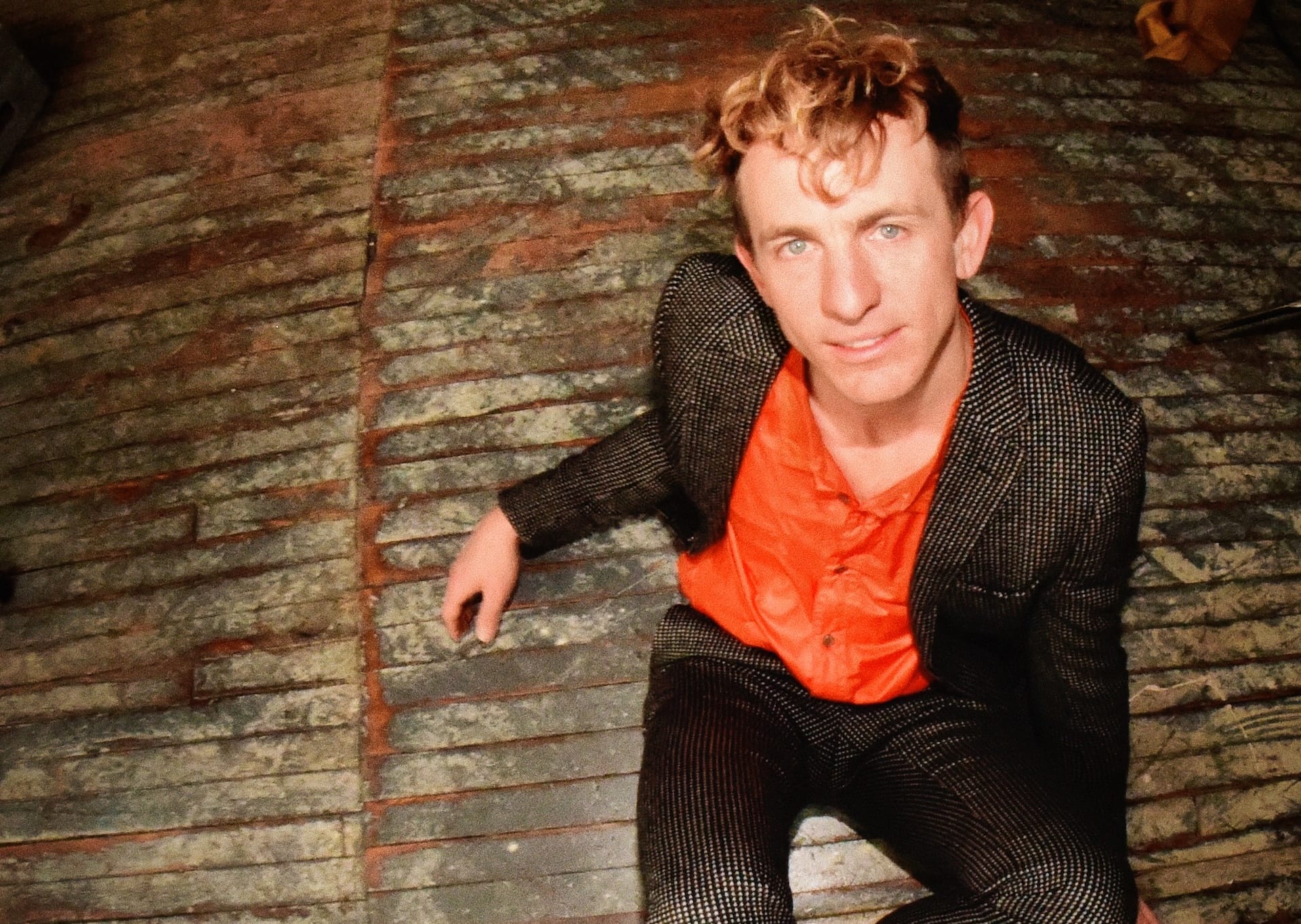Spotlight: Buck Meek

photo: Shervin Lainez
***
Many musicians live either in the world of the self-taught or the formally educated—the “by-ear” or the “by-knowledge,” the left-brain or the right-brain. Buck Meek occupies a space somewhere in between. Like his bandmates in the art-folk quartet Big Thief, he spent time at Boston’s prestigious Berklee School of Music—and his ability to morph between jazzy licks, noise-rock feedback and country twang offers a versatility beyond the average “indie” guitarist.
In conversation, some of his theory knowledge slips out—in recent interviews promoting his third solo LP, the vividly yearning and often nakedly romantic Haunted Mountain, the Texas native has spent time reflecting on the emotional colors of his harmonically complex chords. But for Meek, none of that technicality is relevant to crafting a great song. His voice, for example, is a captivating instrument full of creaks and croaks—he’s not a natural singer, perhaps, but there’s a crucial lesson embedded in that fact.
“When I first started to sing as a kid, I was more concerned with trying to sing beautifully, but it didn’t feel like I was connecting with my speaking voice—or my honest voice,” he says. “Through years of listening, I’ve realized that the thing that often moves me the most is when it feels like someone is just talking to me. There is an intimacy in listening, where it feels like I am getting to know them as a person—not this identity they are projecting as a ‘song voice.’”
Meek realized this goal—“to sing as if I was talking, to replicate the sound of my speech but with melody”—as he started writing songs, inspired by the “conversational” quality of masters like John Prine. “The literal quality of the lyrics can sometimes be very simple, but there’s this inferred depth somehow behind the words, almost like in what’s unsaid,” he notes. “A lot of my favorite songs are that way. I found that there’s something about melody that sanctifies words.”
That concept is essential to Haunted Mountain, which was recorded at Texas’ Sonic Ranch studio with the guitarist’s regular band and co-produced with multi-instrumentalist Mat Davidson. The album exudes human warmth in whatever style Meek is exploring—whether it’s a gently psychedelic star-gaze (“Mood Ring”) or folky campfire twinkle (“Paradise”). The album’s through-line is love—a romantic bond, a platonic friendship or even the magic feeling you get while gazing at breathtaking nature.
But at the core of this love is a sense of mystery—we’ll never know everything there Shervin Lainez is to know about that idyllic mountainside, just as we can never fully enter the mind of a partner. The album’s thematic center could be the gorgeously ragged, harmony-speckled ballad “Secret Side,” featuring the tragically poetic chorus, “I’ll never know the secret life inside of you.”
“That very line in that song is kind of the key to the album,” he says. “You inevitably will arrive [at that realization] with anyone, no matter how much you love them. It’s kind of a choice to actually sit with it and either run away from it or try to run through it together. Beneath the themes of love across the album—romantic love, the love of a mother and son, the love of a platonic friend, the love of a mountain, the reciprocity of nature—is the idea of humility. That song is about admitting that humility and surrendering to the whole picture. I think that’s a big part of love in any form and a big part of what leads to the reward too.”
Some of these “love songs” are disarmingly blunt—from the childhood memories unspooled in “Cyclades” to the budding romance of “Didn’t Know You Then” (“I knew the moment that I saw you/ That my life would never be the same/ You drew a flower on my face/ My heart bruised as you flew away”). It’s interesting to contrast his solo material to the Adrianne Lenker-dominated Big Thief repertoire, which is equally evocative, though often more mystical. And Meek feels a sort of symbiotic empowerment between the two projects.
“It helps to have a balance,” he says. “In Big Thief, I’m able to shape-shift a lot as an instrumentalist and a supportive vocalist—we do collaborate on songwriting sometimes, but it’s more in a supportive role. On the guitar, I’m able to move from a more aggressive role to a super melodic space supporting the melody, creating these beds of ambience. In my solo project, it feels much more confessional, and there’s a responsibility to be a guide or something. I can take on a lot of different characters.”
It’s also important for Big Thief to take on a lot of characters. Their next release, which would follow 2022’s Dragon New Warm Mountain I Believe in You, could wind up being extra heavy, as they tap into the “cathartic” adrenaline of their live shows. And as the conversation drifts back to the majesty of nature, the guitarist, perhaps playfully, pitches an idea for recording one of their future albums in Luray Caverns, Va., home to the Great Stalacpipe Organ.
“I really want to get Big Thief in there,” he says, “to make a Gregorian chant death-metal record or something.” That’s somehow Buck Meek in a nutshell—intellectual and primal in equal measure.




















